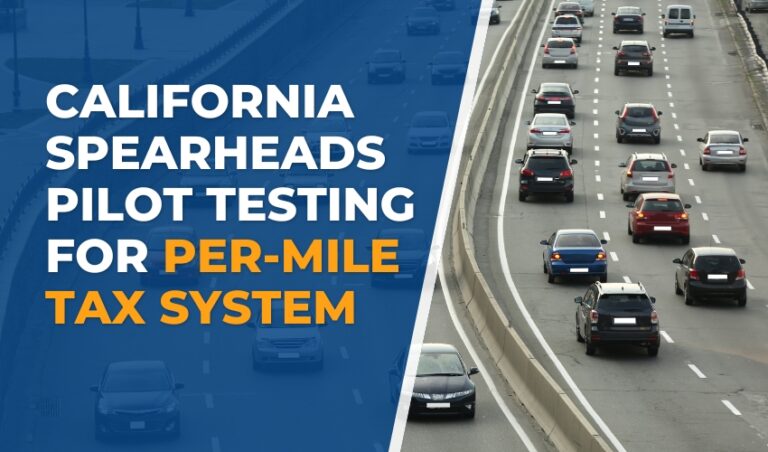A recent social media post went viral on May 30 claiming that California locals will be taxed 30 cents per mile they drive. This post has been verified by Instagram and has been flagged as inaccurate. However, it is true that California is pilot-testing a new mileage tax system that is projected to replace the gas tax.


Gas tax revenue has been used by the local government to improve and maintain California roads. With the rise of electric vehicles, however, the gas tax will eventually be obsolete as vehicles will become less dependent on this fuel source in the future.
According to the Bureau of Transportation Statistics, there are over 1 million hybrid or electric vehicles that are currently registered in the state. This number is expected to continually rise and thus, the revenue from the gas tax will inevitably decrease. Therefore, the California Department of Transportation, also known as Caltrans, has proposed a program called California Road Charge.
Caltrans spokesperson and Road Charge manager Lauren Prehoda has stated, “On average, Californians pay about $300 a year in state gas taxes. EVs have a $100 (annual) registration fee… That’s a $200 million a year loss.”
The California Road Charge program has been formulated as an alternative to the current funding mechanism that the state uses to support highway maintenance and road safety. Similar to how consumers are currently paying their gas fees based on consumption, the California Road Charge program will charge consumers based on mileage. Contrary to the claims made online, however, the tax rate will not be $0.30 per mile.
Prehoda has stated that the rate will be “not anywhere near what we’re talking about here,” referring to this social media post. To reassure the public, she remarked that she “highly doubt it would ever get to a level that would be 30 cents per mile.”
The project will launch its pilot program in August with 800 volunteers which will be randomly split into two groups. The first group will be taxed a flat fee of 2.8 cents per mile, while the second group will be taxed based on their vehicle’s fuel efficiency. The program has not set a cap for the tax per mile so far, but Prehoda noted that it is extremely unlikely that the rate will reach 30 cents. Additionally, Prehoda said that the state is still looking for ways to attain a flat rate “so that everyone is paying the same to use the road.”
A Toyota Prius, being one of the most fuel-efficient vehicles, will be taxed 1.05 cents per mile if the amount is calculated based on the fuel’s efficiency which, according to the EPA, is 57 miles per gallon for the said car model. However, a Bugatti Chiron Super Sport, which is on the other end of the efficiency spectrum, will be taxed 6.62 cents per mile. Both these amounts are considerably lower than the rumored 30 cents.
So far, the proposed project offers three choices for reporting mileage: submitting a photo of your odometer every month, having a device shipped to your home that you will plug into your vehicle to keep track of GPS location data, or for newer car models, you can set up vehicle telematics that have connected accounts through Tesla, Hyundai, BMW, and other manufacturers to keep track of your mileage.
The downside of choosing the latter option is that you will have to constantly share your location data which is something you might not be comfortable with. However, miles driven outside California will not be charged since the proposed mileage tax is not applicable outside the state jurisdiction.
”So it really ends up being what works best for you,” Prehoda stated. “If you feel like, you know, you’re driving out of state a lot, then you might want to choose that [latter] option that determines which state you’re in, but if you don’t like the idea of sharing your location information, that’s OK, too. You can choose one of the other options, it’s totally up to you.”
At the end of the six-month study in early 2025, the participants will receive a gas tax credit and an incentive amounting to up to $400. Electric vehicle owners will instead receive partial credit on registration fees.
”There’s nothing automatic about this,” according to Prehoda. She adds that “nothing has been decided.” This is a work in progress and it is too early to conclude anything since no data has been finalized as of yet.






